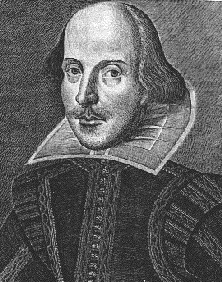History of Poetry
Landmarks for the Written Language
- 3000 BCE- first record of pictographic writing (after 30,000-50,000 years of evolving human language!) in Mesopotamia and Egypt
- Pictograms developed independently in China around 1,500 BCE
- Shift to ideographic writing (symbols taking on abstract meanings rather than pictorial representation) in the Near East between 2,500 BCE and 100 BCE.
- Jump from ideographic to phonological writing as early as 1,300 BCE, syllabic meaning as opposed to units of meaning
- Alphabets (non-meaning-bearing symbols that represent phonemes) invented by North Semitic people in Syria and Palestine around 1,700 BCE

The Appearance of Poetry
The "Epic of Gilgamesh" was one of the earliest poetic works ever recorded, dating back to 2,000 BCE. Historians speculate that the poetic verses of "The Epic of Gilgamesh" was created to help the Sumerian storytellers better remember the story of King Gilgamesh. These epic poems were a form of poetry that were created even before humans invented written language. The Romans and Greeks were famous for the epic poetry produced during their rule- namely, the "Iliad" and the "Odyssey" (~650 BCE) by Homer, and "Works and Days" (~700 BCE) by Hesiod.

Changes Over Time
Gradually between 455 CE to 1485, poetry began to encompass much more subject material than just great epics. The language used also changed, as Geoffrey Chaucer began using vernacular writing instead of the formal Latin most works were preserved in. By the Renaissance from 1485-1660, both form and meter had started to deviate and grow in variety. Styles were developed, especially as famous playwrights such as William Shakespeare and Thomas Marlowe used poetic verse in their plays. The Romantic Period (1790-1830) brought about still more variety to the form of poetry. Transcendental movements and Romantic thinkers began to emphasize creativity, individuality, and nature.

Walt Whitman
(1819-1892)
From there, poetry gave rise to free verse, a form developed mostly in the Victorian period (1832-1901), where poets like Walt Whitman began to break away from established structures and expressed themselves without need for rhythm or rhyme. The modernist movement in the 1900's emphasized simplicity in poetry, and the postmodern movement after 1945 incited a lot of experimentation and abstraction in different poetic styles. From there came beat poets, spoken word, and arguably, even other forms of verse such as rap.

William Shakespeare
(1564-1616)
"Poetry is the spontaneous overflow of powerful feelings: it takes its origin from emotion recollected in tranquility."
-William Wordsworth